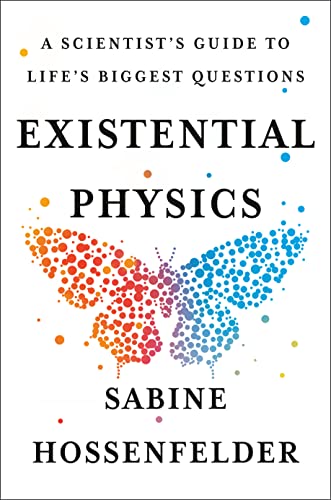John Horgan
Author of The End of Science and director of the Center for Science Writings at Stevens Institute of Technology
Book Recommendations:
Recommended by John Horgan
“A truly comprehensive and wonderfully accessible terrorism course all contained in a single text.” (from Amazon)
by James J. F. Forest·You?
The Terrorism Lectures, 3rd Edition, is a collection of timely and engaging lessons directly from the classroom of terrorism expert James J. F. Forest. The book and accompanying online materials delve into the history of terrorism, its root causes and enablers, its many forms and organizations, as well as the frameworks that analysts use to determine the scope of terrorist threats. The Terrorism Lectures is an essential work for students, scholars, and national security practitioners.
Recommended by John Horgan
“Wilson asks: Does humanity have a special place in the universe? Where are we going, and why? He answers by telling science’s latest creation stories, and presenting a vision of the future both inspiring and plausible, not an easy feat to pull off… Wilson is both a wild-eyed optimist and a hard-nosed realist. What more can we ask of a prophet?” (from Amazon)
by Edward O. Wilson·You?
by Edward O. Wilson·You?
National Book Award Finalist. How did humanity originate and why does a species like ours exist on this planet? Do we have a special place, even a destiny in the universe? Where are we going, and perhaps, the most difficult question of all, "Why?" In The Meaning of Human Existence, his most philosophical work to date, Pulitzer Prize–winning biologist Edward O. Wilson grapples with these and other existential questions, examining what makes human beings supremely different from all other species. Searching for meaning in what Nietzsche once called "the rainbow colors" around the outer edges of knowledge and imagination, Wilson takes his readers on a journey, in the process bridging science and philosophy to create a twenty-first-century treatise on human existence―from our earliest inception to a provocative look at what the future of mankind portends. Continuing his groundbreaking examination of our "Anthropocene Epoch," which he began with The Social Conquest of Earth, described by the New York Times as "a sweeping account of the human rise to domination of the biosphere," here Wilson posits that we, as a species, now know enough about the universe and ourselves that we can begin to approach questions about our place in the cosmos and the meaning of intelligent life in a systematic, indeed, in a testable way. Once criticized for a purely mechanistic view of human life and an overreliance on genetic predetermination, Wilson presents in The Meaning of Human Existence his most expansive and advanced theories on the sovereignty of human life, recognizing that, even though the human and the spider evolved similarly, the poet's sonnet is wholly different from the spider's web. Whether attempting to explicate "The Riddle of the Human Species," "Free Will," or "Religion"; warning of "The Collapse of Biodiversity"; or even creating a plausible "Portrait of E.T.," Wilson does indeed believe that humanity holds a special position in the known universe. The human epoch that began in biological evolution and passed into pre-, then recorded, history is now more than ever before in our hands. Yet alarmed that we are about to abandon natural selection by redesigning biology and human nature as we wish them, Wilson soberly concludes that advances in science and technology bring us our greatest moral dilemma since God stayed the hand of Abraham.
Recommended by John Horgan
“I don't always agree with Sabine Hossenfelder, but I'm always eager to hear what she has to say. She is one of our boldest young thinkers, and not just in physics. Her new book provides a splendid showcase for her iconoclastic outlook.” (from Amazon)
by Sabine Hossenfelder·You?
by Sabine Hossenfelder·You?
A NEW YORK TIMES BESTSELLER “An informed and entertaining guide to what science can and cannot tell us.” —The Wall Street Journal “Stimulating . . . encourage[s] readers to push past well-trod assumptions […] and have fun doing so.” —Science Magazine From renowned physicist and creator of the YouTube series “Science without the Gobbledygook,” a book that takes a no-nonsense approach to life’s biggest questions, and wrestles with what physics really says about the human condition Not only can we not currently explain the origin of the universe, it is questionable we will ever be able to explain it. The notion that there are universes within particles, or that particles are conscious, is ascientific, as is the hypothesis that our universe is a computer simulation. On the other hand, the idea that the universe itself is conscious is difficult to rule out entirely. According to Sabine Hossenfelder, it is not a coincidence that quantum entanglement and vacuum energy have become the go-to explanations of alternative healers, or that people believe their deceased grandmother is still alive because of quantum mechanics. Science and religion have the same roots, and they still tackle some of the same questions: Where do we come from? Where do we go to? How much can we know? The area of science that is closest to answering these questions is physics. Over the last century, physicists have learned a lot about which spiritual ideas are still compatible with the laws of nature. Not always, though, have they stayed on the scientific side of the debate. In this lively, thought-provoking book, Hossenfelder takes on the biggest questions in physics: Does the past still exist? Do particles think? Was the universe made for us? Has physics ruled out free will? Will we ever have a theory of everything? She lays out how far physicists are on the way to answering these questions, where the current limits are, and what questions might well remain unanswerable forever. Her book offers a no-nonsense yet entertaining take on some of the toughest riddles in existence, and will give the reader a solid grasp on what we know—and what we don’t know.


